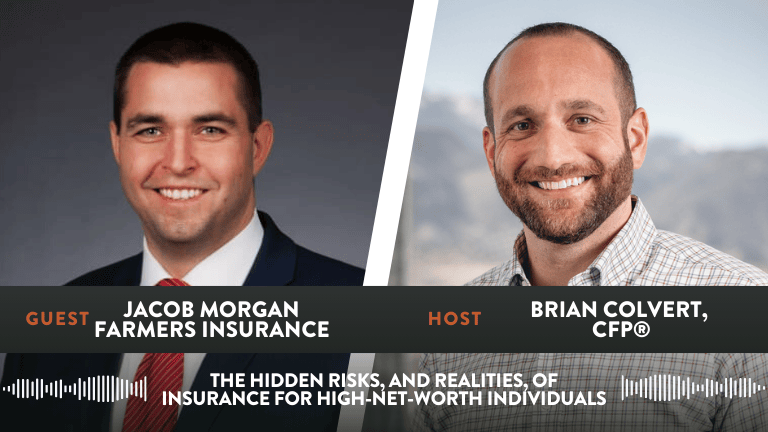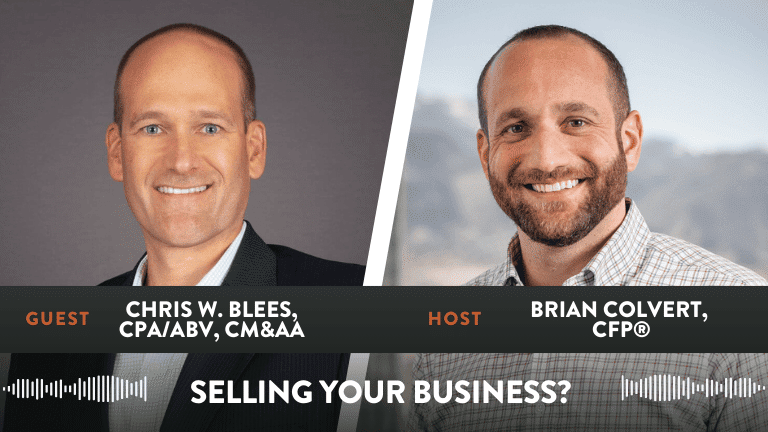As a business owner, you’ve likely poured time, energy, and capital into building a company from the ground up. You understand risk, reward, and how to make strategic investments that generate real returns. But as your business matures or you begin to explore new opportunities, one powerful yet often misunderstood strategy enters the conversation: investing in private equity.
Listen Now: iTunes | Spotify | iHeartRadio | Amazon Music
Private equity has long been the playground of institutional investors and ultra-high-net-worth individuals. But today, more business owners are discovering that private equity can be a smart, strategic way to diversify their portfolio, generate long-term returns, and stay connected to the world of entrepreneurship, without the day-to-day operations. Today we’ll break down what private equity is, how it works, the benefits and risks, and how business owners can leverage it effectively.
What Is Private Equity?
At its core, private equity refers to investing in companies that are not publicly traded on stock exchanges. These are privately held businesses, often with strong fundamentals and growth potential, that are looking for capital to expand, restructure, or prepare for a sale or public offering.
Private equity investors typically provide that capital in exchange for ownership stakes, then work to improve the company’s value over time. This can involve operational improvements, financial restructuring, management changes, or even merging with other companies. The ultimate goal? To sell the company at a higher valuation and deliver a return on investment.
There are a few key ways investors can participate in private equity:
- Direct Ownership: Buying a stake directly in a private company, often as part of an ownership group.
- Private Equity Funds: Investing in a fund managed by professionals who allocate capital across a portfolio of private companies.
- Fund of Funds: Investing in a fund that itself invests in multiple private equity funds, offering greater diversification.
- Private Equity ETFs: While technically public, some ETFs offer exposure to private equity firms, though they may lack the returns and control of direct investment.
Why Business Owners Should Consider Investing in Private Equity
Business owners are uniquely positioned to understand private equity because they already live in the world of private enterprise. You know what it takes to scale a business, manage risk, and create value.
Here are several reasons why investing in private equity makes sense:
1. You Already Understand the Landscape
As a business owner, you likely have insight into operations, sales, marketing, leadership, and finance. This makes you well-suited to evaluate potential private equity investments. You may even have an edge in identifying promising companies in your own industry.
2. Higher Potential Returns
Private equity has historically outperformed public markets over the long term. According to data from Cambridge Associates and other sources, private equity has delivered higher average annual returns than many traditional asset classes.
3. Diversification
Most business owners have a significant portion of their wealth tied up in their own company. Investing in private equity allows you to diversify within a space you understand, reducing concentration risk while still staying aligned with your entrepreneurial mindset.
4. Hands-Off Ownership
Not all private equity investments require active management. By investing in a fund or as a limited partner, you can participate in the growth of private companies without the time and responsibility of running another business.
5. Exit Strategy Alignment
Private equity can also play a role when you sell your business. Many owners roll over part of their equity into the acquiring firm’s private equity structure, giving them continued exposure and upside potential.
Understanding the Risks
Of course, investing in private equity isn’t without risk. Here are a few things to be aware of:
1. Illiquidity
Private equity investments are typically long-term commitments. Your capital may be tied up for 5 to 10 years, and you won’t have the flexibility to sell shares quickly like you would with public stocks.
2. Accredited Investor Requirements
To participate in most private equity funds, you must meet certain income or net worth thresholds to be considered an accredited investor. This ensures that you can absorb potential losses and do not require short-term liquidity.
3. Higher Fees
Private equity funds often charge management fees (usually around 2%) and performance-based fees (commonly 20% of profits over a set threshold). These fees can eat into returns if the fund underperforms.
4. Lack of Transparency
Private companies aren’t subject to the same disclosure requirements as public ones. That means you might not get the same level of financial information or regular reporting.
Evaluating Private Equity Opportunities
When considering an investment in private equity, take the time to evaluate each opportunity just as you would any other major business decision. Key questions to ask include:
- What is the company’s business model and competitive advantage?
- Who is on the management team?
- What is the growth strategy?
- How is the company currently performing?
- What is the exit strategy?
- If you’re investing in a fund:
- What is the fund’s track record?
- How much experience does the fund manager have?
- What industries does the fund specialize in?
- What are the fees and liquidity terms?
Working with a financial advisor who understands both private equity and your overall financial picture can help ensure the opportunity fits into your broader wealth strategy.
Case Study: The Post-Exit Business Owner
Consider the example of a business owner who recently sold a manufacturing company for $8 million. After taxes, legal fees, and setting aside an emergency reserve, they have $5 million to invest. They’re already maxing out retirement accounts and own income-generating real estate.
Rather than putting the full $5 million into public markets, they decide to allocate $1.5 million into a private equity fund that specializes in mid-market logistics firms—a space they know well. By doing so, they:
- Stay connected to a familiar industry
- Benefit from professional fund management
- Avoid operational stress
- Have the potential to earn strong long-term returns
The remainder of their portfolio is split between municipal bonds, a diversified ETF portfolio, and some philanthropic giving. This approach creates balance while allowing their capital to continue working in the business world.
The Future of Private Equity for Business Owners
Private equity isn’t just for the big players anymore. More platforms are making it accessible to qualified investors with lower minimums, better transparency, and tailored strategies. As a business owner, you can leverage your knowledge and experience to identify quality investments, assess risk, and make educated decisions that align with your goals.
Whether you’re preparing for a future exit, looking to put surplus cash to work, or simply diversifying away from your primary business, investing in private equity offers a compelling path forward.
Final Thoughts
Investing in private equity gives business owners the chance to continue doing what they do best: evaluating opportunities, understanding risk, and building value. It can be an effective tool for diversification, long-term growth, and staying engaged in the entrepreneurial world without the daily grind.
Next Steps
If you’re curious about how private equity could fit into your wealth strategy, we’d love to help. Book a call with us to explore how investing in private equity could support your long-term goals. With the right approach, private equity might be more than just a good investment, it might be your next big move.
 Client Login
Client Login











